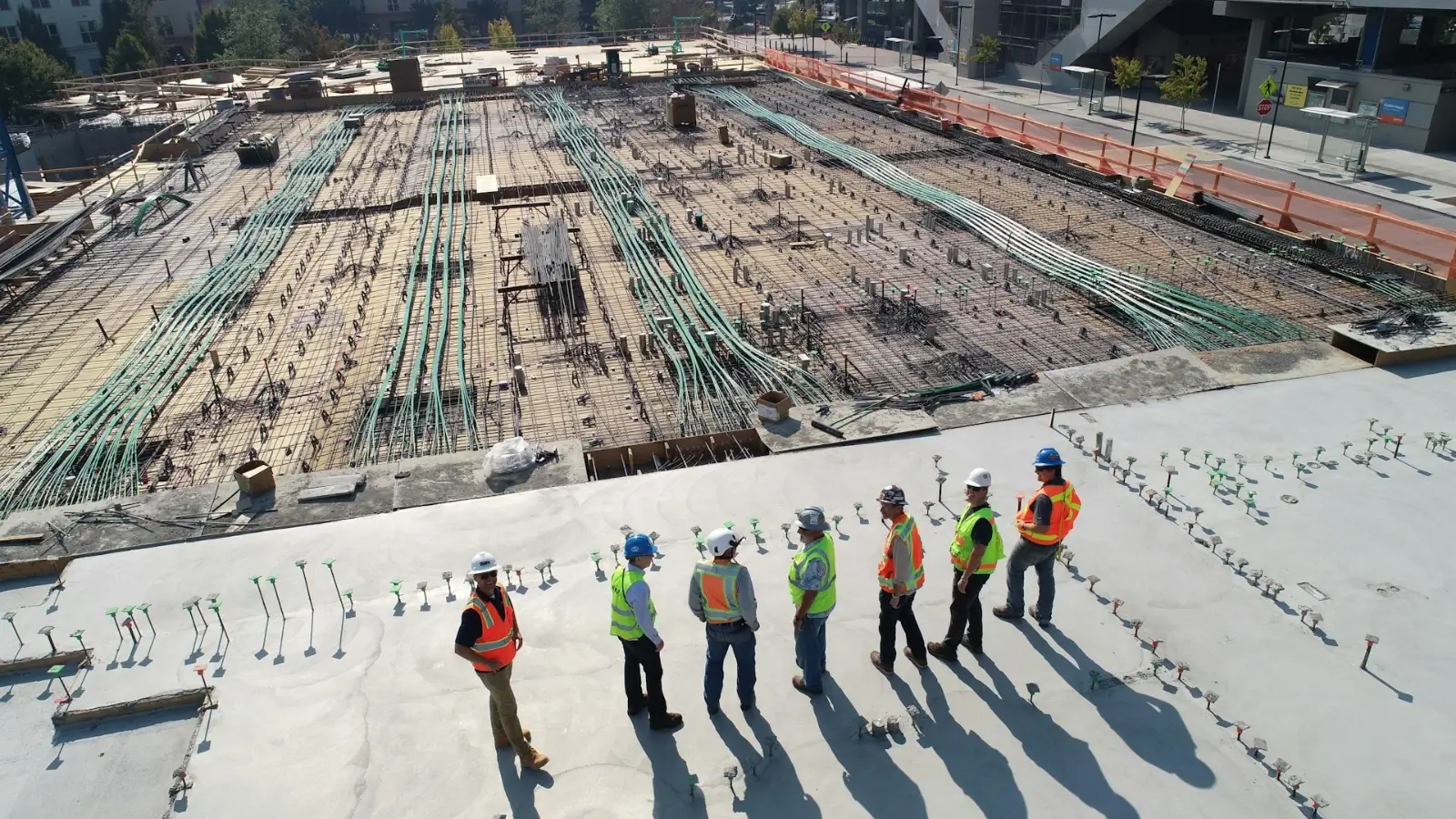Growing your construction business can feel like navigating a complex blueprint. It’s about finding the right balance between planning and execution while staying open to unexpected changes. You have the tools to succeed, and knowing how to use them effectively is essential for scaling your operations.
Investing in technology can significantly enhance your productivity and efficiency. Modern software solutions can streamline project management and communication, helping you stay competitive in a fast-paced industry. These tools are vital for not only keeping track of projects but also for improving collaboration within your team and with clients.
Building strong relationships is key to long-term success. Your partners, suppliers, and customers all play a crucial role in your growth journey. Prioritize clear communication and reliability to establish trust and enhance your reputation in the industry. The connections you build today can open doors to new opportunities tomorrow.
Strategic Planning for Expansion
Expanding your construction business can be a rewarding but complex endeavor. Key considerations include analyzing your market, setting clear objectives, and defining a balance between your long-term vision and short-term goals. Staying organized and informed is essential to navigating and succeeding in this process.
Market Analysis and Research
Understanding the market landscape is crucial. Examine your current position, your competitors, and potential opportunities for growth. Track recent trends to better anticipate shifts that could affect your operations.
Engage with industry reports and leverage valuable insights from focus groups or surveys. Interview key stakeholders or target clients to gather direct feedback. Data-driven decisions can provide a competitive edge.
Setting Clear Objectives
Concrete objectives guide your expansion strategy. Define what success looks like for your business. Use the SMART criteria—Specific, Measurable, Achievable, Relevant, and Time-bound—to set realistic goals.
Consider whether you aim to increase revenue, enter new markets, or boost brand recognition. Whatever your targets, ensure they align with your core competencies and available resources. Keep your organization focused and motivated by regularly revisiting these goals.
Long-Term Vision and Short-Term Goals
Balancing your long-term vision with practical short-term goals keeps your business on a sustainable path. Draft a roadmap that outlines your five-to-ten-year vision while breaking it into achievable segments.
Track progress through quarterly or annual milestones. Adjust strategies as necessary to address unforeseen challenges or capitalize on emerging opportunities. This flexibility helps maintain momentum as you grow.
Optimizing Operational Efficiency
Enhancing operational efficiency requires a strategic focus on technological advancements, streamlined project management, and minimizing waste. These factors play an essential role in boosting productivity and profitability in the construction industry.
Manual lathes, or example, are essential tools in certain areas of construction, especially for crafting custom components and machining materials with precision. When planning your equipment needs, it’s also important to consider whether you need heavier machinery such as deciding when to get a track loader for tasks involving heavy lifting or grading. Incorporating these machines into your workflow can significantly reduce time spent on tasks and improve overall accuracy, contributing to smoother project execution.
Adopting New Technologies
Incorporating new technology is a big win for operational efficiency. Tools like Building Information Modeling (BIM) can streamline design and construction processes, improving collaboration among teams. Drones allow for remote site inspections, saving time and reducing safety risks. Robotics can automate repetitive tasks, enhancing accuracy and speed.
Additionally, investing in extrusion equipment can improve the efficiency and precision of construction processes, especially in areas requiring custom materials.
Consider using software for real-time tracking of materials and equipment to reduce downtime. Cloud-based platforms enable seamless communication and data sharing. Stay open to emerging technologies that could provide a competitive edge and boost productivity.
Improving Project Management
Effective project management hinges on clarity and meticulous oversight. Use project management software to keep stakeholders aligned and ensure every phase stays on schedule. Establish clear roles and responsibilities within the team to prevent miscommunication.
Regular progress meetings are critical. They allow for early identification of issues, enabling prompt solutions. Agile management techniques can adapt to changes smoothly, minimizing disruption and ensuring project objectives are met efficiently.
Communicate clearly and often. A shared digital workspace can facilitate this, keeping everyone updated and informed.
Waste Reduction Techniques
Reducing waste not only supports the environment but also bolsters your bottom line. Implement recycling systems for materials like steel and concrete. Lean construction techniques focus on the efficient use of resources, minimizing excess and maximizing output.
Encourage a culture of reuse and recycling on-site. Conduct regular audits to identify areas for improvement. Prefabrication can also significantly cut waste by producing only what’s necessary. Monitor supply chains to ensure material deliveries align closely with project needs, reducing storage time and potential spoilage.
Financial Management and Funding
Effective financial management and securing proper funding play crucial roles in the growth of your construction business. Managing cash flow, obtaining financing, and budgeting are essential strategies that can lead to sustainable success.
Building strong relationships with financial institutions and a PR agency for financial services can help enhance your company’s financial reputation, improve visibility, and open doors to better interest rates and favorable terms.
Being prepared with thorough financial documentation aids in smoother application processes and ensures that your business stands out to potential investors and lenders.
Cash Flow Optimization
Cash flow is the lifeblood of any construction business. To keep your projects running smoothly, it's important to maintain a strong focus on incoming and outgoing cash flows.
Create a system that tracks invoices and expenses in real-time. You might consider using specialized software that offers real-time updates and alerts. Timely billing helps in receiving payments faster, reducing the gap between spending and receiving funds.
Negotiating favorable terms with vendors can extend the time you have to pay, giving you more flexibility. Encouraging early payment from clients can also be beneficial.
Clear communication with stakeholders about payment schedules ensures transparency, preventing unwelcome surprises. A financial buffer, like a line of credit, can also provide peace of mind during lean periods.
Accessing Construction Financing
Accessing the right kind of financing is vital for scaling your operations. Familiarize yourself with the different financing options available to construction businesses. These include term loans, lines of credit, and equipment financing.
Term loans offer a lump sum upfront, ideal for large investments. Lines of credit can help cover short-term funding gaps, offering flexibility when needed. Equipment financing allows you to purchase or lease necessary machinery without draining your capital reserves.
Building strong relationships with financial institutions can open doors to better interest rates and terms. Being prepared with thorough financial documentation aids in smoother application processes.
Explore government grants or low-interest loans designed for businesses in the construction sector. These can be beneficial for funding specific projects, helping you grow without added financial strain.
Budgeting and Forecasting
Developing a detailed budget and accurate forecasts can guide your business to success. Start by analyzing past project performances to identify patterns that can influence future projections.
Engage in regular monitoring of project costs and adjust budgets as necessary. Setting realistic short-term and long-term financial goals keeps your business aligned with its growth objectives.
Forecasting can help anticipate potential market changes or economic conditions that may affect your business. Consider factors like seasonal downturns, material price fluctuations, and labor costs when planning your budgets.
Using software tools for budgeting and forecasting can increase accuracy and save time. These tools typically offer features like variance analysis and trend reports, aiding in better decision-making.
Conclusion
Growing a construction business requires a blend of strategic planning, efficient operations, and strong financial management. By adopting new technologies, streamlining project management, and reducing waste, you can boost productivity and stay competitive. Building solid relationships and understanding the financial aspects of your business are key to long-term success.
Balancing long-term vision with short-term goals will help you navigate challenges and opportunities. With the right focus on cash flow, financing, and continuous improvement, your construction business is set for sustainable growth and success.
















